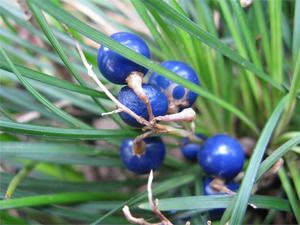
Pinyin: Mai Men Dong Latin: Ophiopogon Japonicus
Physical Characteristics
An evergreen Perennial growing to 0.3m by 1m. It is hardy to zone 7. It is in leaf all year, in flower in August, and the seeds ripen from September to October. The flowers are hermaphrodite (have both male and female organs) The plant prefers light (sandy) and medium (loamy) soils. The plant prefers acid, neutral and basic (alkaline) soils. It can grow in semi-shade (light woodland) or no shade. It requires moist or wet soil and can grow in water.*
Family
Edible Uses*
Edible Parts: Root. Root. A bitterness should be removed according to some reports whilst another says that it is sweet and aromatic. Mucilaginous. The root contains about 1.6% protein, 0.5% fat, 80% carbohydrate, 2.3% ash.*
Traditional Chinese Medicinal (TCM) Uses*
Antipyretic; Antiscrophulatic; Antitussive; Aphrodisiac; Cancer; Emollient; Expectorant; Nutritive; Pectoral; Sedative; Sialagogue; Stomachic; Tonic. The root is antitussive, aphrodisiac, expectorant, pectoral, sedative, sialogogue, stomachic and tonic. It is said to have anticancer activity. It is used internally in the treatment of dry coughs, fevers, thirst, dry constipation, insomnia, anxiety and palpitations. It is also frequently used in polyherbal treatments of diabetes mellitus. The roots have an antibacterial action, inhibiting the growth of Staphylococcus, E. coli, Bacillus subtilis, B. typhi etc. The roots are harvested in the spring and dried for later use. The plant is antipyretic, antiscrofulatic, antitussive, emollient, expectorant and tonic. Lowers blood pressure. Nodules on the fibrous roots are used as a nutritive tonic in the treatment of TB.*
References
Sources: Ophiopogon Japonicus Snake's Beard Ophiopogonis Japonicum, Mai Men Dong Tuber Plants For A Future, England 1996-2008.
This work is licensed under a Creative Commons License.
Natural dietary supplements are designed to offer the body support to promote health, harmony, balance and overall well being.*

 Get Well Natural, LLC
Get Well Natural, LLC  Kidney Function & Regeneration Health
Kidney Function & Regeneration Health  Platelet & Blood Cell Health
Platelet & Blood Cell Health  Prostate, Flow & Function Health
Prostate, Flow & Function Health  General Mind & Body Health
General Mind & Body Health  Heart, Cholesterol & Cardio Health
Heart, Cholesterol & Cardio Health  Allergy-Free Body
Allergy-Free Body  Anxiety & Stress
Anxiety & Stress  Blood Platelet Counts & Function
Blood Platelet Counts & Function  Blood Pressure Health
Blood Pressure Health  Kidney Function Health
Kidney Function Health  Immune System Health & Balance
Immune System Health & Balance  Prostate & Urinary Health Function
Prostate & Urinary Health Function  Blood Sugar Balance
Blood Sugar Balance  Cardiovascular Heart Health
Cardiovascular Heart Health  Detoxification & Healthy Cells
Detoxification & Healthy Cells  Women's Health
Women's Health  Liver Regeneration
Liver Regeneration  Pain-Free Body
Pain-Free Body  Water & Air Filtration
Water & Air Filtration 


